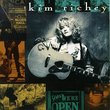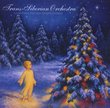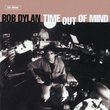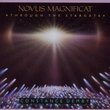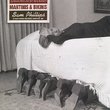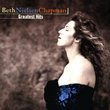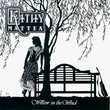| All Artists: Ben Allison Title: Riding the Nuclear Tiger Members Wishing: 2 Total Copies: 0 Label: Palmetto Records Original Release Date: 1/1/2000 Re-Release Date: 1/9/2001 Genres: Jazz, Special Interest, Pop Styles: Avant Garde & Free Jazz, Modern Postbebop, Bebop Number of Discs: 1 SwapaCD Credits: 1 UPC: 753957206727 |
Search - Ben Allison :: Riding the Nuclear Tiger
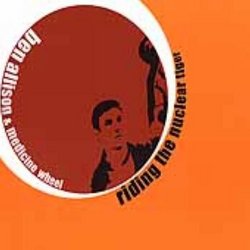 | Ben Allison Riding the Nuclear Tiger Genres: Jazz, Special Interest, Pop
|
Larger Image |
CD DetailsSimilarly Requested CDs
|
CD ReviewsPolyrhythmic and Quantitatively Melodic Jazz Infinite Catalyst | Monument, CO | 05/13/2004 (5 out of 5 stars) "This CD is phenomenal. For A jazz CD to achieve the status of 'phenomenal' is not an easy task. Not because jazz as a genre or type of music is inferior to any other genre, but on the contrary, jazz is the most cerebral and emotional amalgam of complexity and simplicity. This being said, a small handful of musicians in the past have mastered the art, this yin and yang of seemingly contradictory elements; harnessing them into a single song or album -- Resplendant musicians like Duke Ellington, John Coltrane, and Thelonius Monk, a few of the dynamic fathers who understood and saw the entire aural mosaic of jazz, not tile by tile, but as a whole, and were lifted on wings of aural prophecy to move freely and melodically throughout their own creations. Ben Allison is the young prodigy bassist of this CD, who is part of a New York Jazz Composers Collective, and subsequently is a partner in the ownership of the Jazz Club "Kush" near Downtown N.Y.C. Allison not only understands the respect of traditional inheritance his instrument entails, he is a fearless experimentor, and genius improvisor, both spontaneously and pre-meditatively. The last song on the CD, "Tectonics," is a perfect illustration of his multi-faceted brilliance. Tectonics, as young Ben uses the word, means the tactilization of sound, or the texturing as Ben narrates in the sleeve notes. Allison conjures dozens of different tones from the Bass ranging from varied and unorthodox methods of plucking and striking the strings, to loading the instrument with playing cards and money pieces for a muffled sounds. He is truly a technically proficient and blistering paced bassist, as well as an eloquent, deliberate, and patient commander of his instrument. Michael Blake Plays Sax on this album. Blake has possibly the most muscular tone on the sax since Ornette Coleman. I want to be careful with this comparison, because most people have a hard time separating style with tone. This is because in most cases style and tone are contingent upon each other. However, Coleman had his albums where it was as if a woman had laid her hand and his chest, calming his fingers and easing steady deep breaths into the saxophone. I call Blake's tone muscular because keeping on the theme of tectonics, if there was to be a visual manifestation of Blake's tone in the first piece, his sound would be an Olympic track and field athlete, male or female, chiseled in every way to perform the task at hand, powerful and graceful in each movement. Blake contributions are narrated perfectly by Allison in the sleeve notes as, "[Blake] solo's with conviction and feedback." We have Frank Kimbrough on Piano (the same line of suspects is emerging from Medicine Wheel and Third Eye) who is equally as experimental with his instrument as Allison on the bass. Kimbrough is an unbelievably subtle yet important piece of this musical posse, contributing tones and themes, and transition keys that are dynamic to the production of each song. He has poignant solos in the songs, "Jazz Scene Voyeur," and "Charlie Brown's Psychedelic Christmas." Jeff Ballard is the percussion wiz here. Listen to the first twenty ticks of the first song on this CD. Jeff Ballard does live with a drum set what music theory nerds take years to program on a Roland. In the first song, listen to his high-hat fills and snare trips that suffuse the background beat. Ballard is as punctual as he is creative, he is as precise has he his abstract. He really outdoes himself for this album, in my mind reaching Carter B's (Dave Matthew's Bands drummer) status for more than just a moment. A handful of other players here make some very subversive contributions to the album: Ted Nash, who has been acclaimed highly for his collaborations with Wynton Marsalis, and Horton who uses some atonal work in the song "Swiss Cheese D." The first three songs are killer, one modern and space-paced, the other two more traditional. Listen to all of "Riding the Nuclear Tiger" as the last two songs provide a finale well worth waitng too. Goodbyes especially for this CD hold lingering regret. Tone-wise, and end-of-epic-CD-blues. Ben Allison himself says of the album, (this is a memorized paraphrase) "It's about the excitement of almost losing control, and just barely being able to hold on." That's what happens when savants and geniuses collaborate and make an aural brew filled with the perfect blend of experimental ingredients and traditional method. Thank you, that is all." Fresh and lively Geofredo | Montreal | 06/15/2001 (4 out of 5 stars) "I came into Ben Allison country after being seriously impressed with his arrangement of a little-known Herbie Nichols tune on his collaboration with the Herbie Nichols Project (don't miss this band!). This album is his latest (circa early 2001) and while it doesn't set any new standards, it continues the existing ones admirably. Allison is that rare breed of bassist who writes--well! If he continues like this, Mingus and Dave Holland won't remain so alone, let's hope. Since there is nothing shameful in keeping friends employed, Allison includes the whole of the Herbie Nichols Project band plus Tomas Ulrich on cello. Michael Blake delivers a walloping solo on the title cut, very strong even for him. Ted Nash, the other reedman, is a more cool player, but as Ben himself says, is "playfully subversive". The selection entitled "Charlie Brown's Psychedelic Christmas" explores parallel tone systems and is indicative of the bassist's distinct qualities as an arranger, as also is in evidence in "Tectonics". Of course his playing is awesome, and the exciting new sounds he coaxes from playing beyond the fingerboard or in his special preparations are never gimmicky. Give this guy a try, and you'll see why... I'm pie-eyed!" Nuclear fusion Todd R. Brown | San Francisco | 09/03/2002 (5 out of 5 stars) "I learned about Ben Allison and Medicine Wheel while working at a, shall we say, unrewarding job that at least allowed me to enjoy Spinner.com.The site put cuts from "Riding the Nuclear Tiger" into heavy rotation, and I was consistently impressed by what I heard. When I got the CD I was blown away by how well-played and impressively arranged the songs are.This isn't "out" jazz by any means, but it brilliantly rides the edge between jazz-rock/world fusion and straight ahead. Such classic influences as Mingus and Ellington -- and even some of the Art Ensemble of Chicago's pan-musical swing -- are quite apparent throughout the disc, but Allison's compositional style is brought right into NOW with Arabic and drum 'n' bass elements, all done totally acoustic.For me, Allison is today's answer to such giants as Duke, Monk and Miles. That's very high praise of course, but no one else has struck me as so all-around talented as this group, from Allison's songcraft to the group's fiery interplay, rhythmic thrust and multi-dimensional sonics.Fans of kindred spirits the Vandermark 5 and Sex Mob will appreciate Medicine Wheel's aesthetic, but even listeners who shy away from such contemporary ensembles in favor of "classic" jazz should find plenty to like on "Tiger."Highly recommended, to say the least."
|

 Track Listings (9) - Disc #1
Track Listings (9) - Disc #1